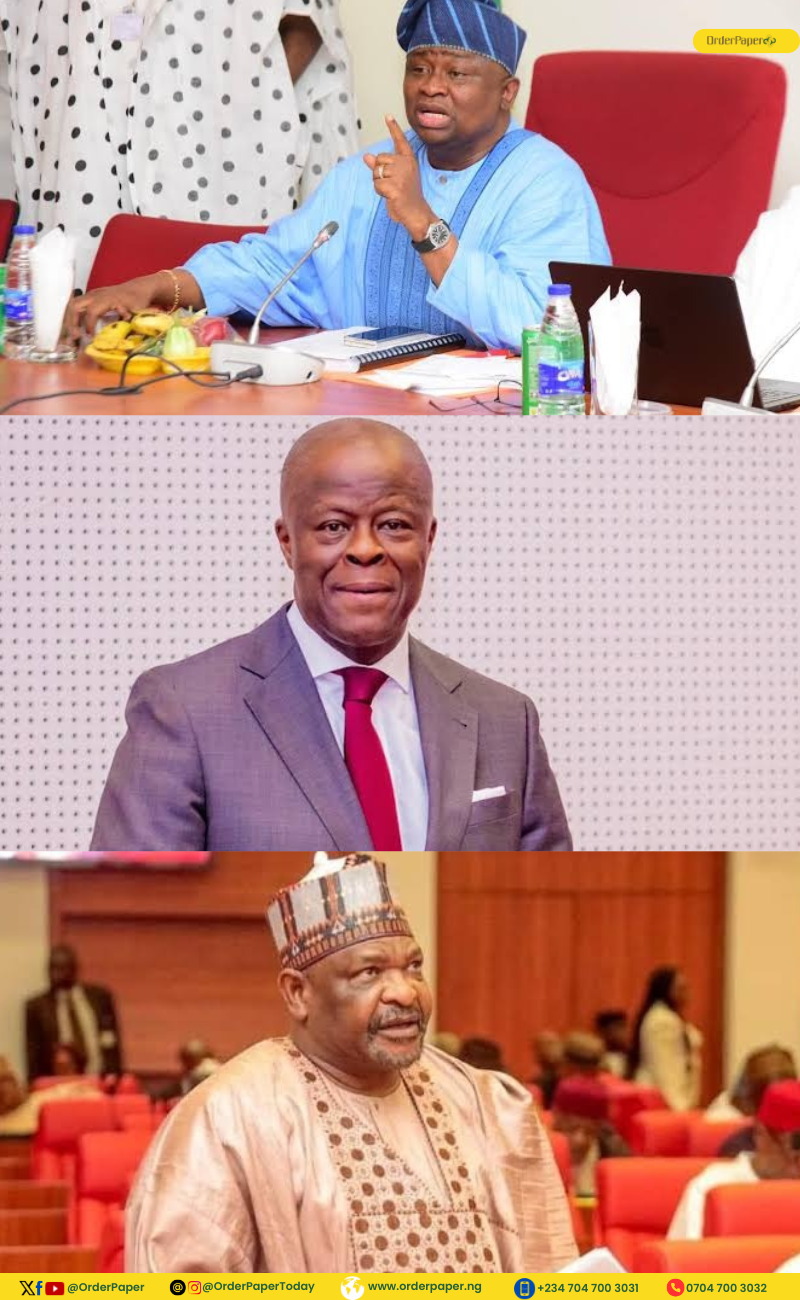In our previous exposition on ‘Quorum in the House of Representatives,’ we noted that where a quorum appears not constituted in the Chamber, the Speaker’s attention is drawn, and he/she shall cause members to be summoned as if for a division.
According to the House Rules, this is also applicable if, from the number of members participating in a division (including those members who declined to vote), a quorum appears not constituted. This week’s episode of #MondayMeme is the concluding part of the exposition on ‘Division in the House and Committee of the Whole’ in the Nigerian House of Representatives.
READ ALSO: Parliament Meme: Division in the House and Committee of the Whole
A member is not expected to vote on any subject in which he has a direct personal pecuniary interest. A vote by a member on this ground can only be disallowed on this ground as soon as the number of members voting on the question shall have been declared.

In the event that such motion for the disallowance of a member’s vote is agreed to, the Speaker or Chairman of the Committee of the Whole shall direct the Clerk to correct the numbers voting in the division accordingly.
In deciding whether a motion for the disallowance of a member’s vote shall be proposed from the Chair, the Speaker, or in Committee the Chairman, shall have regard to the character of the question upon which the division was taken.
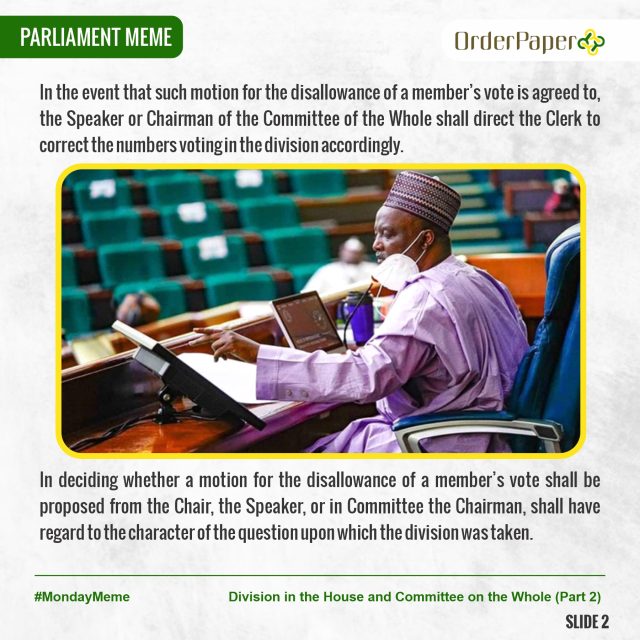
Another consideration in deciding whether a motion for the disallowance of a member’s vote based on personal interest is whether it is direct and pecuniary or whether his vote was given on a matter of state policy.
Any member who fails to disclose his personal pecuniary interest on a matter before the House before voting is liable to suspension from the House or Committee(s) for a period not less than 30 plenary day.
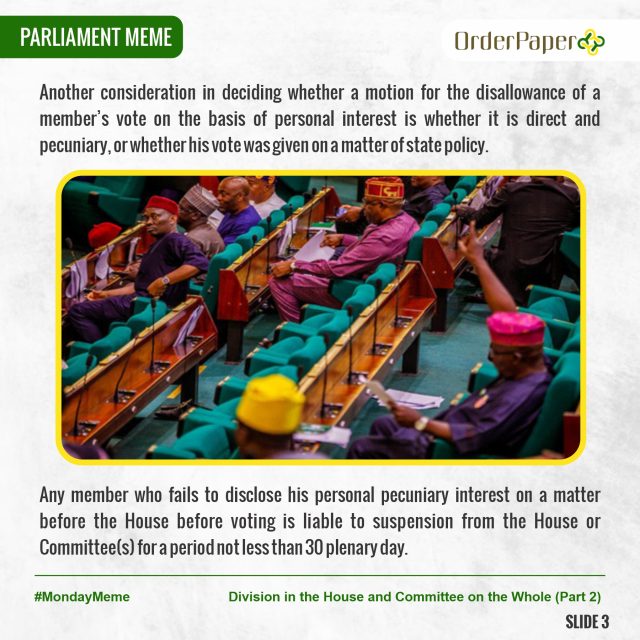
At the end of counting, the tellers shall agree on the numbers voting in that lobby and where in doubt, shall check their numbers with the list of names recorded by the Division Clerk.
This shall be the number to be reported to the House if the tellers are unable to agree.
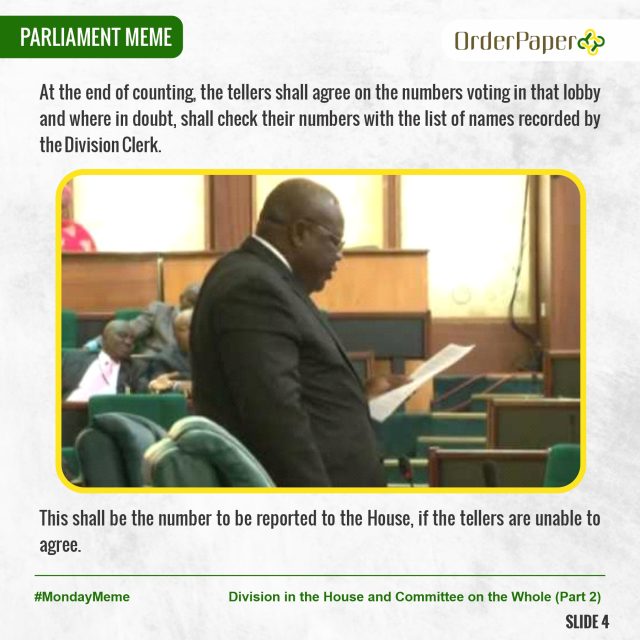
When the number has been agreed as laid down in the Rule Book, the tellers give the number to the Clerk at the Table.
When the tellers from both lobbies have been done with, the Clerk hands to one of the tellers of the side with the majority, the paper on which he has written the numbers.
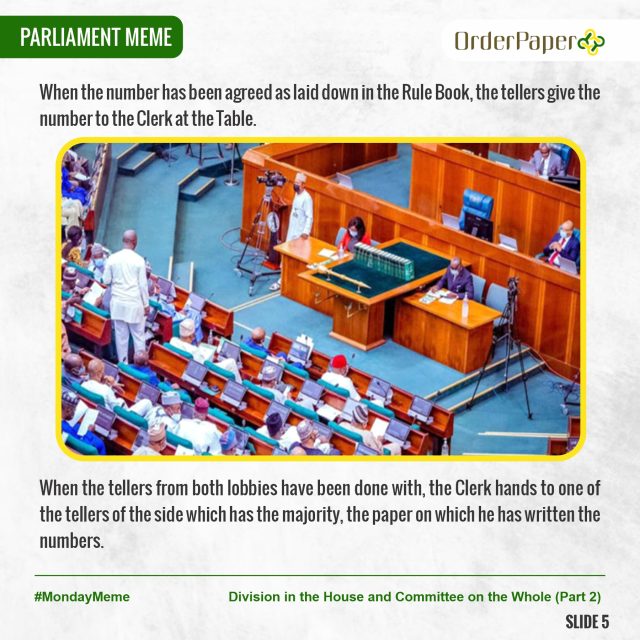
The teller then reads them aloud to the House and hands the paper to the Speaker or the Chairman, who, in turn, reads the numbers to the House or Committee.
The Speaker or Chairman of the Committee on the Whole also declares that the Ayes or Nays have it, as the case may be.
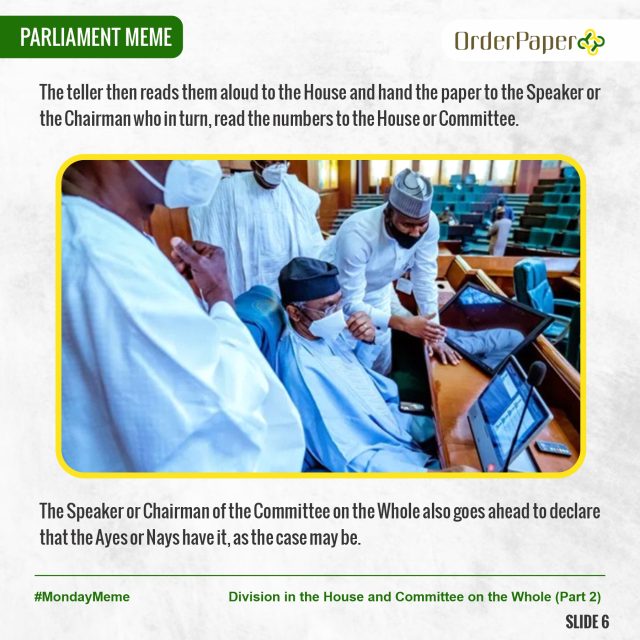
In the event of the numbers being equal, the Speaker or the Chairman may give a casting vote.
If he/she does not do so, the question shall pass in the negative and the Speaker or the Chairman shall declare accordingly.
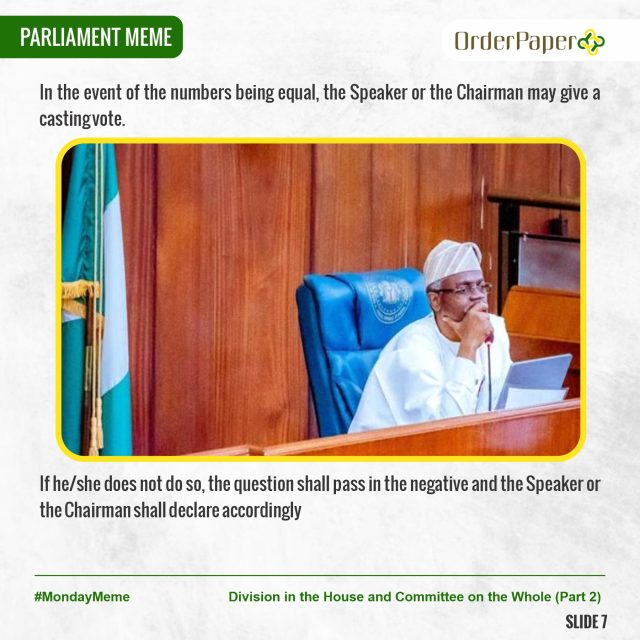
READ ALSO: Parliament Meme: Quorum in the House Of Representatives
Monday Meme is a public service programme by OrderPaper Nigeria designed to break down the esoteric terminologies of the legislature and how the institution of parliament generally functions.


